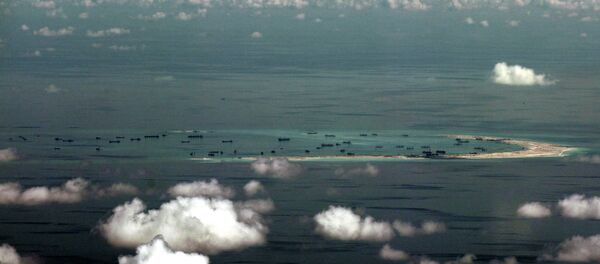For example, the court might've ruled that not the whole of the so called 'nine-dash line' contradicts the UN Convention on the Law of the Sea (UNCLOS), but only some of its interpretations.
He also pointed out that the final press release issued by the Court of Arbitration states that Beijing’s stance and actions exacerbate territorial disputes, according to Lenta.ru.
"China has already declared that it will not follow the court's decision as it doesn't recognize its jurisdiction. The question is, exactly how harsh China’s reaction will be? There were rumors that China may withdraw from the UN Convention on the Law of the Sea, but that sounds unlikely. There’s also a possibility that Beijing may establish an air identification zone over the South China Sea, like it already did over the East China Sea," Tsvetov said.
His concerns were echoed by Alexander Gabuev, chairman of the Russia-Asia Pacific program at the Carnegie Moscow Center, who mentioned that the current situation remains unpredictable, and that one can only hope that China’s response will be limited to rhetoric and not result in a military action.
"The worst thing is, all those reconciliatory measures that were proposed – like a mutual de-escalation, allowing fishermen access to the disputed territories and withdrawing military assets from there – all of it becomes impossible, first and foremost for China. And that means that there’s no de-escalation in sight," Gabuev said, according to RIA Novosti.
In January 2013, the Philippines filed a suit against China, claiming that Beijing had violated the UN Convention on the Law of the Sea by its actions in the South China Sea. China refused to participate in the case.
Earlier on Tuesday, the Hague-based Permanent Court of Arbitration ruled that China has no legal basis to claim historic rights to South China Sea resources and violated the sovereign rights of the Philippines in the country’s exclusive economic zone.


